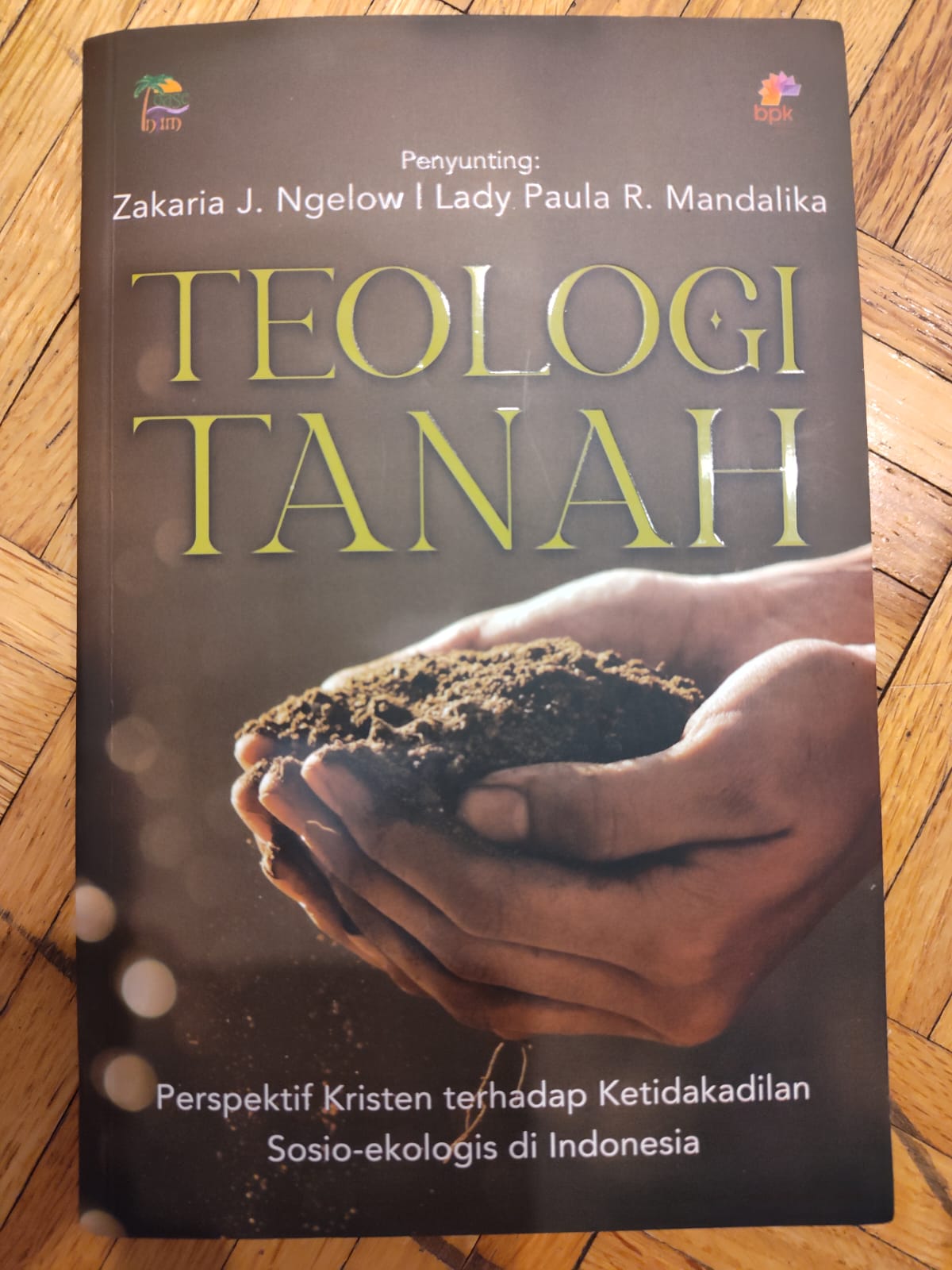
- Original Title: Teologi Tanah: Perspektif Kristen terhadap Ketidakadilan Sosio-ekologis di Indonesia (Theology of Land/Soil: Christian Perspectives on Socio-ecological Injustices in Indonesia)
- Editors: Zakaria J. Ngelow & Lady Paula R. Mandalika
- Archive Type: Book
- Published: 2022 c. 2015
- Publisher: BPK Gunung Mulya with Yayasan Oase Intim
- Place: Jakarta.
- Pages: 394
- ISBN: 9786234150599
- Available File(s): Photos
- Keywords: ecotheology, contextual theology, soil, landgrabbing, Indonesia, Christianity, Zakaria J. Ngelow
- Link: https://bpkgunungmulia.com/products/teologi-tanah-oleh-zakaria-j-ngelow-lady-paula-r-mandalika
In Indonesia, tanah can mean two things: land and soil. Many people use the term loosely and interchangably. So does this book, Teologi Tanah (Theology of Land/Soil), edited by one of the sages of contextual theologian Zakaria J. Ngelow and Lady P. R. Mandalika. The editors do not provide any explanation for what teologi tanah means in this book and rather let the readers find from various authors who use the term.
I feel it important to distinguish these two meanings for English-speaking readers. In Western discourse, land can suggest territorialization of things that the term soil cannot capture, whereas soil suggests tangibility and embodiment. In Indonesia, people do not have to differentiate them. Standing and living in a particular land means living with, from, and for its soil.
Teologi Tanah was originally published to celebrate the ministry of John Campbell-Nelson, Global Ministries missionary, and theologian formerly serving in the Evangelical Christian Church of West Timor, East Indonesia. Contextual theologian Zakaria J. Ngelow, Director of Oase Intim and Campbell-Nelson’s friend, states that the book was also intended to be a resource during agrarian conflicts in Indonesia. In total, 24 authors from various institutions contributed to this project. Some of them might have been known as the “big names” of Indonesian contextual theologies.
The book is about the theology of something. As such, it suggests ideas related to soil, environment, ecology, and others. Academics often call it “ecotheology.” But doing ecotheology on the backdrop of contextual theology means something. It requires being attentive to the contextual condition of the Christian community where theological reflection takes place. As Ngelow writes, “Our responsibilities on creation are not just about sustaining the creation so that the ecosystem can function well.” It also means “letting people manage and use the natural resources according to justice” (xv). As such, the book calls for managing natural resources according to “justice to nature and justice to the neighbors” (xv).
Teologi Tanah is suitable for theologians and activists who are interested in contextual theology, ecotheology, or “socio-ecological” issues such as landgrabbing, extractive industries, deforestation, indigenous advocacy, etc.
Authors in this book: Abidin Wakano, Abraham Silo Wilar, Aguswati Hildebrandt Rambe, Andreas A. Yewangoe, Asyer Tandapai, Denni H. R. Pinontoan, Dominggus Elcid Li, Gomar Gultom, Jacky Manuputty, John Mansford Prior, Julianus Mojau, Karel Phil Erari, Karen Campbell-Nelson, Lady Paula R. Mandalika, Lusia Palulungan, Mery L. Y. Kolimon, Nancy Novitra Souisa, Peter C. Aman, Robert P. Borrong, Ronald Arulangi, Tertius Y. Lantigimo, Semuel O. Aitonam, Steve Gaspersz, Torry Kuswardono, Weslly Johannes, Zakaria J. Ngelow.
Photo(s)
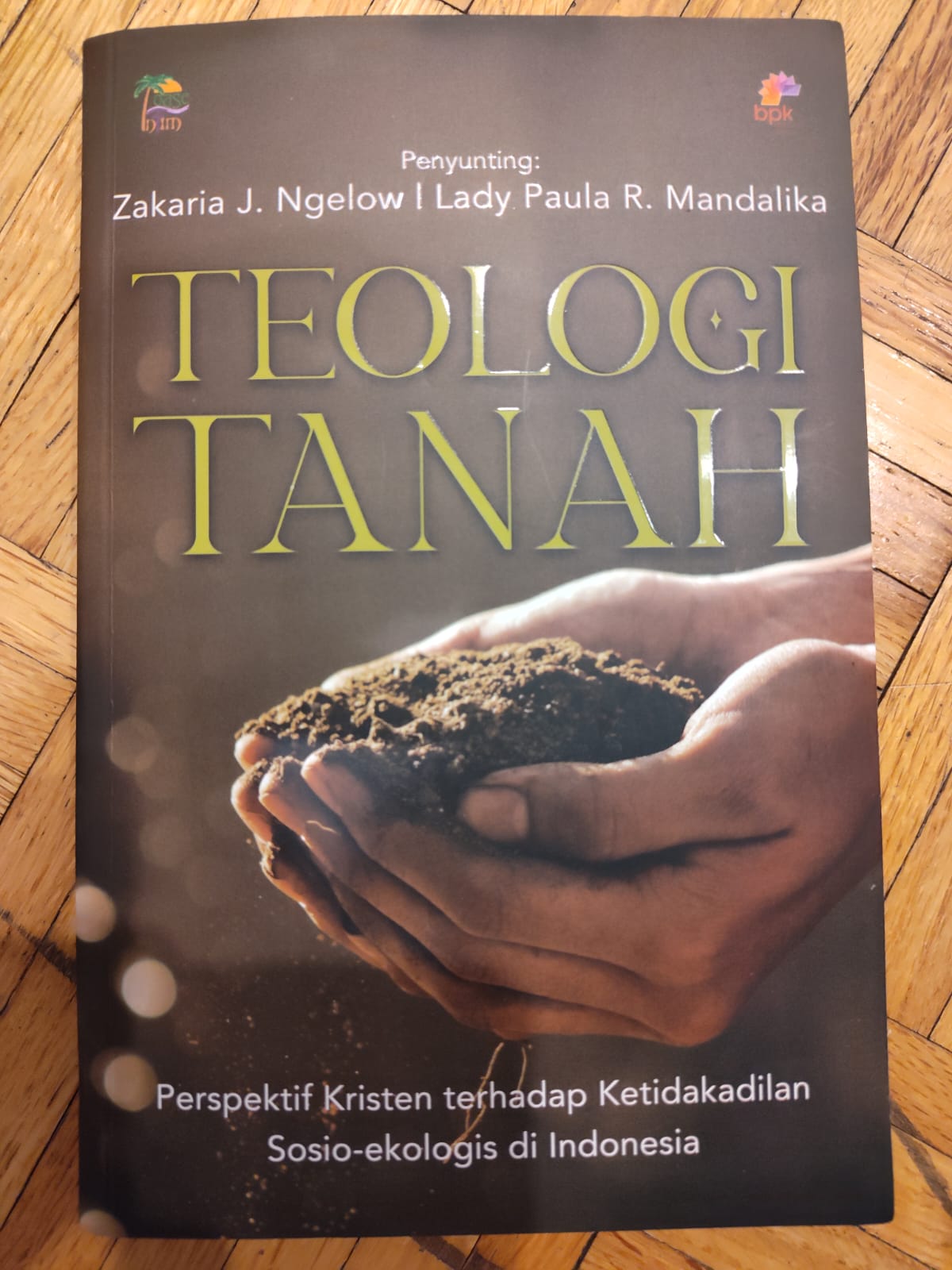
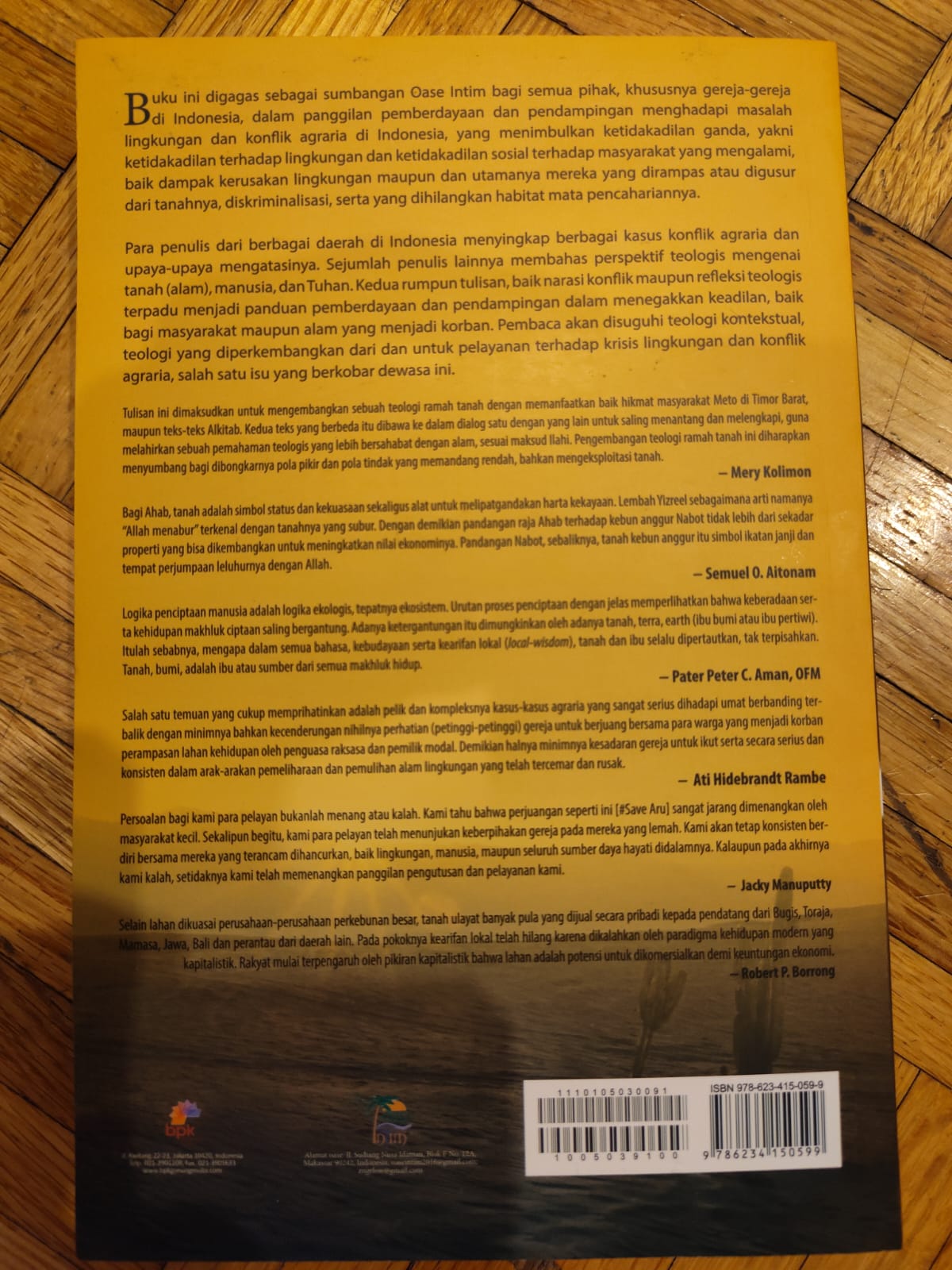
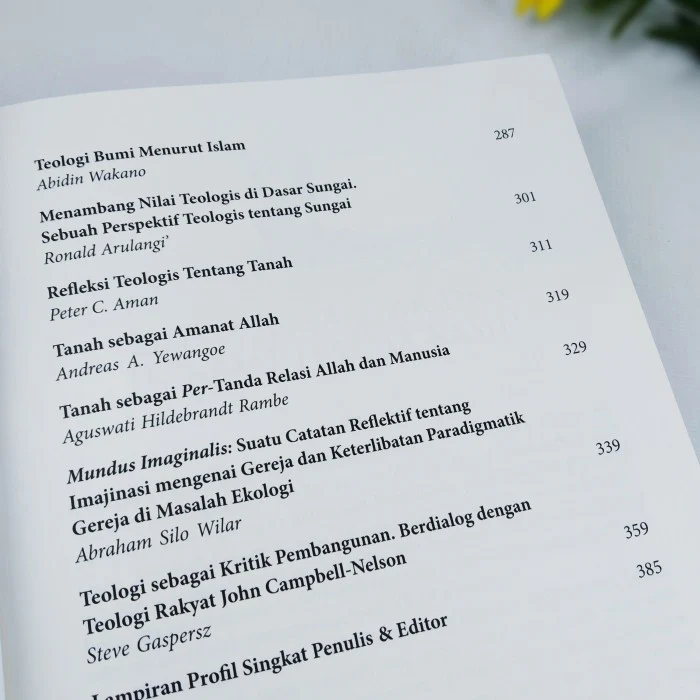
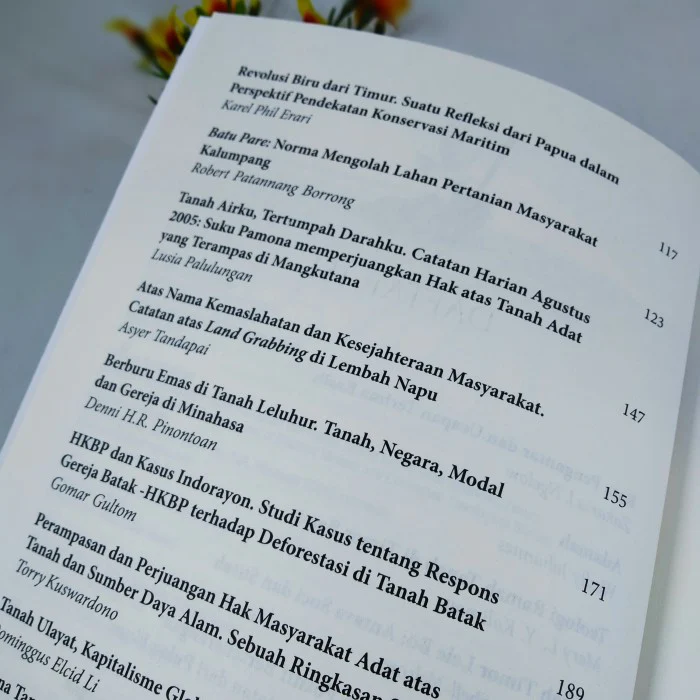

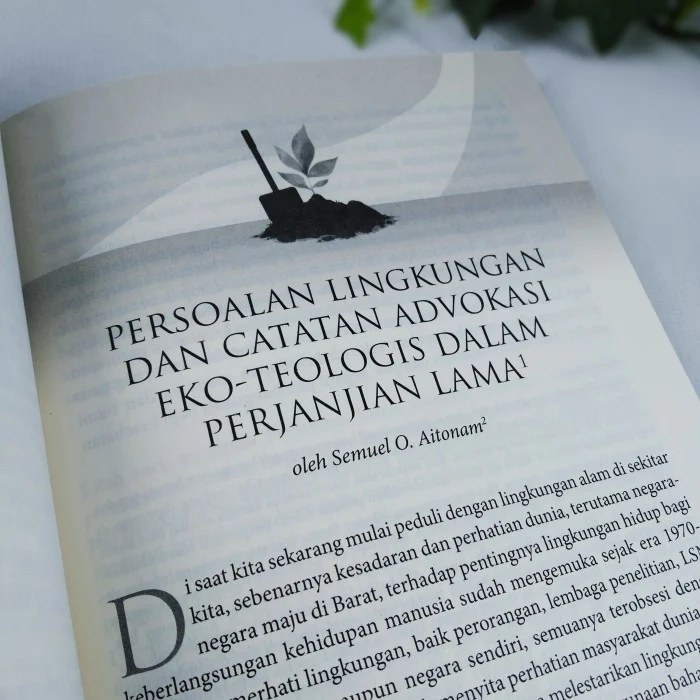
Source(s)
- Zakaria J. Ngelow and Lady Paula R. Mandalika, Teologi Tanah: Perspektif Kristen terhadap Ketidakadilan Sosio-ekologis di Indonesia (Jakarta: BPK Gunung Mulya, 2022 c. 2015).
- Ernst Conradie, “Ecotheology,” St. Andrews Encyclopedia of Theology, 2023, ed. Brendan N. Wolfe et. al., https://www.saet.ac.uk/Christianity/Ecotheology.
- Lourdino A. Yuzon, “Towards A Contextual Theology,” CTC Bulletin, by Christian Conference in Asia, https://cca.org.hk/ctc/ctc94-02/1.yuzon.htmLourdin.
Written by Abel K. Aruan (November 16, 2024); Edited by Abel K. Aruan (January 12, 2025).